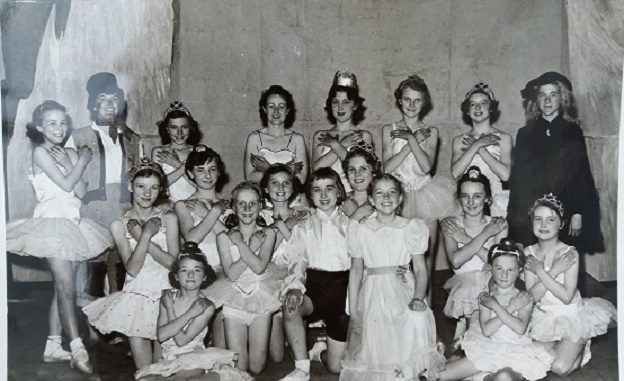
“You can’t be a snowflake fairy and a shrimp”, said my ballet teacher in 1956. Well, no brainer – who’d choose a pink swimsuit with six spidery legs when you could have a satin tutu with sequins and a silver crown? I was ten, and I didn’t have the stamina to do two dances and a quick change in my ballet class production of Tom and the Waterbabies.
I’d had polio three years before and I’d had to learn to walk again but was determined not to miss out on the things my friends were all doing – and not admit I was different in any way. At school I clouted Pamela Smith who called me “limpy leg” and none of the kids mentioned my limp again.
I never really wanted to acknowledge my limitations.

Polio has long term effects. Your muscles wear out faster because there are fewer of them and your bones get arthritis because they’re never in the right place. Gravity gets you in the end.
It took me a long time to acknowledge that I was not just someone who was a bit less talented physically than everyone else.
Thanet is full of people like me – people in wheelchairs, mobility scooters, stick users, walking frames and the under-cover disabled – the deaf, partially sighted, the fearful of all kinds. Many reluctant to acknowledge their problems.They use decorative sticks as if they chose them as an accessory to match their frock, or they prefer being unbalanced to using a stick in case it makes them look old.
I’ve now decided I can call myself disabled without thinking I’m inferior to real people. I’ve come out! I use a stick and I’ve stopped worrying about it.
‘Hidden disabled’
But there’s a group of the hidden disabled who are often completely misunderstood. A friend I’ve only known for a short time came out to me yesterday. She has some physical problems but she also has Aspergers, a form of autism. And this is her biggest problem. Talking about it is agonising.
Autistic people find social situations very difficult. They can’t easily put themselves in other people’s positions, and it takes them a while to work out how to deal with people – in some cases it’s difficult for them to understand the meaning of facial expressions. They tend to have literal, logical minds so dishonesty is almost impossible for them.
For example, I have a young friend, Tom, who has Asperger’s. On his sister’s wedding day several of us agreed to meet at 8.30am to have breakfast. Four of us turned up early, neurotic about getting ready in time, so we were on our scrambled eggs when he came in. He was very shocked. How could we say one thing and do another?
Put people with Asperger’s into a political situation and they find it hard to understand how governments can promise to take care of the sick and vulnerable and not do it. Or make it hard for people who are entitled to benefits and fulfil the correct criteria but then have to go through a constant checking process which fills them with stress.
Campaign groups
I want to live in a community where people don’t have to worry if their legs stop working or for some reason they can’t face the world. Don’t we want a state that really cares about the sick and disabled?
Locally, for me, this means that disability campaign groups like Access Thanet have to encourage the visibly disabled – the stickies and wheelies – to come out in their thousands and be prepared to fight for the rights of all us, especially those people who find coming out the hardest thing in the world.
Access Thanet : www.accessthanet.wordpress.com.

